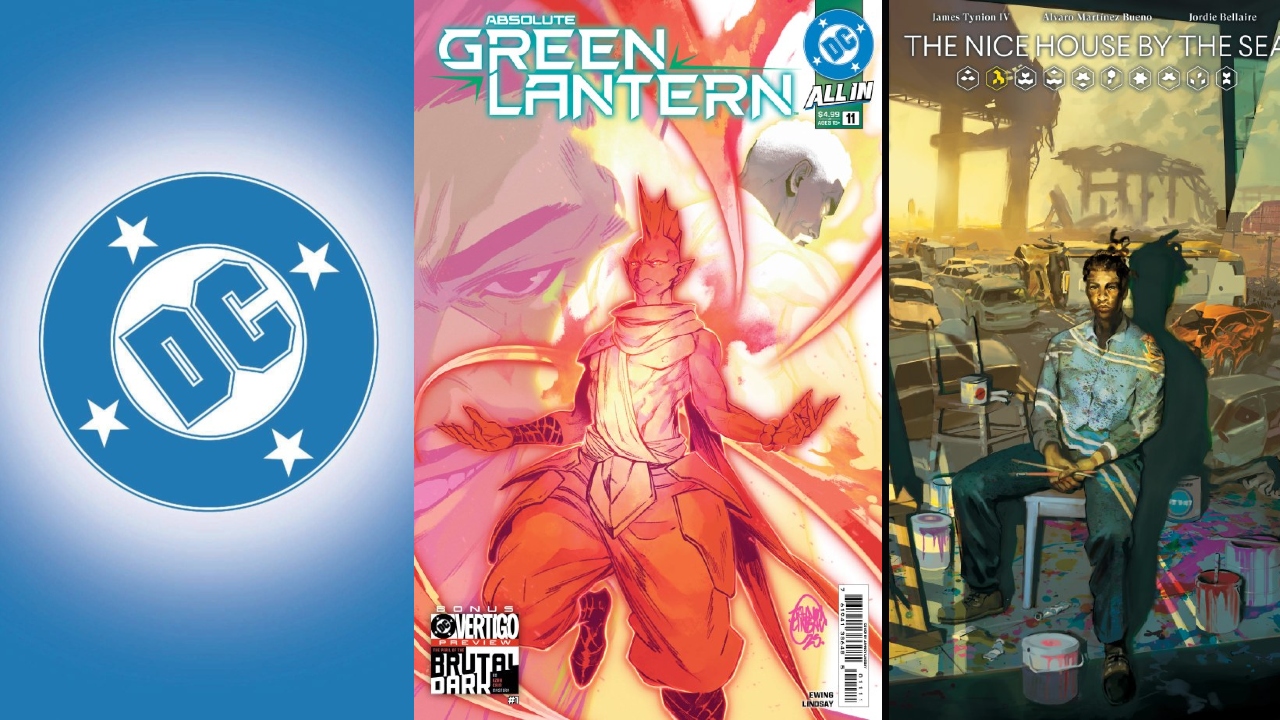https://www.youtube.com/watch?v=K-SDk-rlauA
Titus Williams. James Wilkins. Nisa Rodriguez.
These are the boxers of tomorrow.
Director Bartle Bull helmed the documentary Cradle of Champions that followed a year in the lives of three amateur boxers competing in the New York Daily News Golden Gloves tournament. Since 1927, this tournament has produced many professional world champions and Olympians in our sport.
The documentary made its premiere last fall and is now currently available as VOD.
Bartle Bull is an American writer and journalist, who specialized in foreign affairs in the Middle East. Cradle of Champions will mark his directorial debut into filmmaking.
Read our exclusive interview below.
LRM: What was the origination for Cradle of Champions? Where did you get the original idea from?
Bartle Bull: The film is about the world of boxing in New York City. We tell the story of a year or a one year’s tournament in the New York Daily News Golden Gloves tournament, oldest most important amateur boxing tournament in the world. I really knew nothing about it until I discovered it. The year I first got into it, I met some kids from the gym of Harlem in New York City where I worked at. [These kids were] in the tournament. I would go to watch them and to support them. That’s how I discovered this amazing world. It’s a community around New York City of the top gyms and the top amateur fighters. Found this beautiful, beautiful world that I knew nothing about. I was compelled to pick up a camera and make a movie about it. I’d been a writer most of my working life, but never made a movie. I just found this so inspiring that I had to make the film.
LRM: I’ve never heard of the Golden Gloves either. Is it really well known and popular in the New York area or is that worldwide?
Bartle Bull: There are city or regional golden gloves tournaments across the United States. The oldest of these tournaments is the one in New York, which was founded by the New York newspaper called the New York Daily News. It’s called the New York Daily News Golden Gloves. It was founded in the 20s. It’s been around for almost a century. In New York, it was a big part of that city’s life. Amateur boxing is smaller these days. In the world of amateur boxing, Golden Gloves is a huge deal. The New York version of the tournament is the oldest and the biggest. The New York Daily News Golden Gloves produced more professional world champions and the Olympics. It’s a big, big deal.
LRM: Before you got started on this project, how extensive was your research into the Golden Gloves?
Bartle Bull: The movie follows three people through one year of the tournament. I’ve educated myself as much as I could about the history of the tournament. In a sense, the tournament, itself, is a character and almost the hero of the movie.
LRM: How did you choose your three subjects for the film? Or did you actually have multiple subjects and the three were just the finalists?
Bartle Bull: It’s a really important question for anybody making a tournament movie, because you don’t know who’s going win or lose. In our case, we plunged into the world with all these fascinating individuals. The people that I knew going into the tournament and we were focused on ultimately didn’t make it all that far in the tournament. We knew that might happen. The three people who the film is ultimately gets made about were the individuals of Titus Williams, James Wilkins and Nisa Rodriguez. Each of them were endowed with this extraordinary charisma. These three individuals whenever they were around just kind of dominated whatever room they were in. We found them incredibly compelling. From the beginning, we made sure always to shoot them and spend a little time with them. As my original characters start dropping out of the tournament, these three emerged. We were incredibly lucky to spend time with these three characters early in the tournament. By the time they emerge as our main characters, we have all the great material that we need. As you see in the film, they’re just people who are remarkable with charisma and character.
LRM: Did you have any interaction with the fourth finalist? The female finalist?
Bartle Bull: We did a little. We got two male finalists, who ended up meeting each other. There’s a clash on who’s going to win? We’ve got to know both of them. In the case of our third character Nisa Rodriguez–we don’t really know her opponent very well at all. In that case for Nisa, whether or not she wins, I don’t think it’s a big spoiler. We can tell she’s marching on to victory. What makes her story exciting is to see her awesomeness express itself. We’re not really setting up that character as a narrative with great drama. with any doubts. She’s the overdog. You don’t have to see if she wins. What we get out of her character isn’t a big drama. Will she or won’t she prevail? It’s to see her journey in a sense of fulfillment. There is that fourth finalist, not a huge character in the movie. I think Nisa’s character gives the viewer a different kind of satisfaction
LRM: Absolutely. While filming a documentary, sometimes you’ll face difficulties. Were there are a lot of people that we were reluctant to participate in your documentary?
Bartle Bull: Gig, I will say it was certainly a real process for a nonfiction film shot from real life. It’s highly professional with big visible crews I’ve worked with. That helped. Plus, I spent a lot of time with our characters. Everyone wants to be in a movie, especially that’ll end up on Showtime. No one wants to be in a movie with people they don’t like or trust. The key part in any nonfiction filmmaking, it’s being able to get people’s trust.
LRM: The final tournament, itself, was that your footage or was that tournament’s footage?
Bartle Bull: That was ours. What’s amazing about this footage is that we’ve never seen real life boxing shot by Oscar-winning photographer. Quite literally in the history of filmmaking, it’s never happened. We have this extraordinary photography of that drama. You’ll remember from watching the documentary, it was quite cinematic.
LRM: For yourself, why did you want to pick up the camera and direct a documentary? This is your first feature film.
Bartle Bull: There’s certainly something about the ballet in the ring. It is implicitly brutal and ugly, but it’s expressively beautiful visually. Boxing lends itself really well to good writing too with great filming. It’s a special sport. Why make a movie? It’s what I saw in the ring. They’re not the world’s most important athletes yet. Maybe they’ll become world champions, but there are a lot of great fighters. And yet, with this sport, what happens in the physically happens in the ring is extraordinary and visually. In this world, the sport inhabits the communities with the fights in the high school gyms, in the church basements, in union halls and other places. All of this I found so rich that I wanted to capture it in a way that really spoke for itself. To write about any of these things like writing about love or a sunset–it’s so rich. How you do it without looking like a jerk? I wanted to get this across in a medium, in this case, with film. It was clear that everything that was wonderful about it was very honest in what you were seeing. It was what really happened. The actual raw material of a nonfiction film is what the camera sees. There can’t be any exaggerating there. It was so wonderful that I wanted it to have that purity. There was no intermediating with the choice of words where he might be fibbing or exaggerating. Great thing about the camera–it speaks for itself.
LRM: You sound like a true boxing fan. Could you talk about your fascination with this sport?
Bartle Bull: It’s a sport I’ve spend many years in. It’s probably since my first or second year in college, or probably about twenty-five years, I’ve spent hanging out in boxing gyms without the courage of ever competing myself. It’s a sport in a world that I’ve learned to love. It compels a lot of people. The situation is so demanding with hard work, courage and other great qualities. I don’t possess those qualities, or the other things a boxer requires. It is nearly not as much as the people who take that sport, who takes it very seriously. It’s a very compelling story. You’re all alone and the stakes are high. Very few things can bind to the same extent. It’s the most beautiful and the most ugly parts of human nature. There’s a reason that more great sports writing about boxing and more great filmmaking about boxing than about any other sport by far and than probably all other sports combined. It’s so beautiful. So ugly. So elemental.
LRM: You mentioned that you’re a writer. What do you typically write?
Bartle Bull: I haven’t been doing much writing in these past few years. more For most part in the last decade, I’ve been published in many of the big newspapers and various magazines. I’ve been writing a history of Iraq. I wrote stories from Iraq during the war and other countries around there. This was more world and my film is entirely new to me.
LRM: It’s a complete right turn to go from the Middle East to boxing.
Bartle Bull: [Laughs] Storytelling is storytelling. There isn’t no story if people don’t trust you and if you don’t have nerves for the story or the character. Even as foreign with the world of inner city boxing to who spent his creative life was writing about the Middle East, there is the nuts and bolts of the activity. Even if there’s a difference in the material, being a writer is an enormous advantage trying to make a narrative film. The film is a story. It’s not a slide show or a lecturer, right? A tiny percentage of documentaries are shot from real life, which they called cinema verite. It’s a narrative story, like a fictional movie, where the events are happening in front of the camera. It’s a very rare thing in the world of documentary. For that kind of documentary, filmmaking is storytelling. Background in writing was really helpful.
LRM: How did your project got involved with Showtime in the first place?
Bartle Bull: Once we shot the film and made it, we were in talks with a whole bunch of different distributors. Showtime ended up being the best one. Networks have a huge role these days. It was a great, great home for us. It gave us a place to tell our story. The story of our characters, who gave us so much from their heart and so much of their time. It’s to bring the film to such a mammoth audience. It’s something you really couldn’t say no to.
LRM: Let me start wrapping things up with you, Bartle, could you talk about some of your future projects? Are you going to stay in film or going to go back to writing?
Bartle Bull: I got so lucky with this movie with our access to the tournament, with our amazing characters, with the people I worked with and so on. It’s also the ultimate success of having it on such a huge network. I had a pretty good experience for this one. It makes it very tempting to try it again.
LRM: One last question for you. I’ll make it a fun one. Who do you think is the greatest box boxer ever?
Bartle Bull: Golly, the greatest ever. I always had a soft spot for Sugar Ray Leonard. A guy has extraordinary elegance and skill. Yet, he is so much tougher and brutal than his elegance and good looks.
LRM: [Laughs] I appreciate this conversation and making time for me.
Bartle Bull: Thank you, Gig. My best wishes to you.
Cradle of Champions is currently available as VOD today.
Source: LRM Online Exclusive
 FOR FANBOYS, BY FANBOYS
Have you checked out LRM Online’s official podcasts and videos on The Genreverse Podcast Network? Available on YouTube and all your favorite podcast apps, This multimedia empire includes The Daily CoG, Breaking Geek Radio: The Podcast, GeekScholars Movie News, Anime-Versal Review Podcast, and our Star Wars dedicated podcast The Cantina. Check it out by listening on all your favorite podcast apps, or watching on YouTube!
Subscribe on: Apple Podcasts | Spotify | SoundCloud | Stitcher | Google Play
FOR FANBOYS, BY FANBOYS
Have you checked out LRM Online’s official podcasts and videos on The Genreverse Podcast Network? Available on YouTube and all your favorite podcast apps, This multimedia empire includes The Daily CoG, Breaking Geek Radio: The Podcast, GeekScholars Movie News, Anime-Versal Review Podcast, and our Star Wars dedicated podcast The Cantina. Check it out by listening on all your favorite podcast apps, or watching on YouTube!
Subscribe on: Apple Podcasts | Spotify | SoundCloud | Stitcher | Google Play



